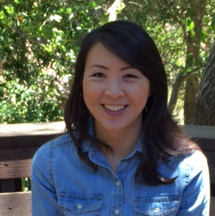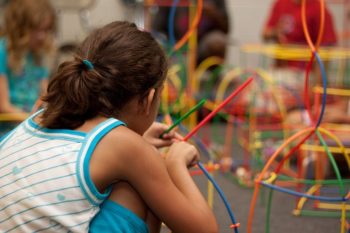How Parents Can Support Student Learning
This blog is a parallel commentary from the parent perspective on Mary Ann Burke’s November 2, 2021 post “What teachers and parents can do to increase student learning” from her series Student Engagement Assessment: Strategies to Empower All Learners.
Most second-generation Asian Americans were prodded by parents to achieve the “American Dream” by becoming a doctor, engineer, or lawyer, my parents gave me the freedom of choice. My Asian American idea of achieving the “American Dream” was not so much defined by a career, but that a successful life was one in which I had every opportunity to fulfill my destiny. When I was young, my parents encouraged me to pursue my passions, to develop my talents, and to follow the sense of calling in my life. During this season of Thanksgiving, I am eternally grateful for the gift of freedom my parents have bestowed on me.
Student Ownership of Their Learning
Now that my daughters are in high school and middle school, I too, want to pass on the gift of freedom. When children know they have full autonomy of their learning, they will be self-motivated. All the content they wish to learn will have meaning and relevance in their lives. Moreover, children will know that they have full support from their parents. In my family, we regularly have conversations about what they want to learn and what activities they want to pursue. This will set up the expectation that they are the ones who need to take ownership of their learning. Some questions we have used in conversations include:
- What do you want to be when you grow up?
- What particular gifts are talents of yours will you be using to fulfill this potential?
- How can you use your gifts and talents to help others?
- How do you see yourself impacting the world in a positive way with this career?
Student Development of Individualized Learning Intentions
Once we have had the conversation about our children’s future goals, we are able to take the next step to individualize their learning intentions and plans. This is where we talk about classes they need to take or activities to get involved with. Since each person will have different goals and a different path in life, it is important to emphasize here that development of individual plans means taking your time to develop a coaching or mentoring approach with your children.
For example, our older daughter has a strong sense of the goals she wants to pursue. For her, developing learning intentions means that we chart out classes and activities that align with her goals. We check in with her to see that she is doing well in her academic classes and that her activities are providing enough of a challenge to grow as a person. Our younger daughter is still exploring her future options. For her, providing a wide range of learning opportunities will help her discover and develop her strengths. She loves helping people, so her activities include many service projects. To help each daughter articulate her individualized learning intentions, here are some questions we have used in conversations at multiple check-points:
- What is something new that you have learned in your classes / activities?
- What is a success you have accomplished within your classes / activities?
- What do you enjoy the most in your classes / activities?
- What struggles do you still have in your classes / activities?
Applying Standards to Student-Owned Learning Intentions
As a parent, guiding your child for success is not so much a looking at your child’s performance on academic standards. What is critical in this parent-child relationship is that you are looking for personal growth towards in your child’s learning intentions. Towards that end, here are some additional conversation starters that will help assess how to continue making progress towards your child’s goals:
- What can I do to support you and help you do your best?
- Are you satisfied with your current learning experiences, or do you need something different / more challenging / less intense to reach your goals?
May you have much success in supporting your kids to achieve the American Dream!

Discovering the joy of teaching while in high school, Jaime pursued her B.A. in English at Santa Clara University. She also received a teaching credential and a M.A. in Education Administration from Santa Clara University. Jaime taught English Language Arts at Rancho Middle School, motivating and inspiring young people to become effective communicators and contributors in their community. From being a Middle School English Language Arts/English Language Development teacher to becoming a stay-at home mom, Jaime is an education consultant who presents literacy workshops. Her workshops focus on a combination of her ten years of teaching expertise with tried-and-true experiences that she uses with her own children. Jaime is also a Teacher Consultant with the San Jose Area Writing Project. Jaime’s mission is to share effective reading and writing strategies with families to encourage literacy.


